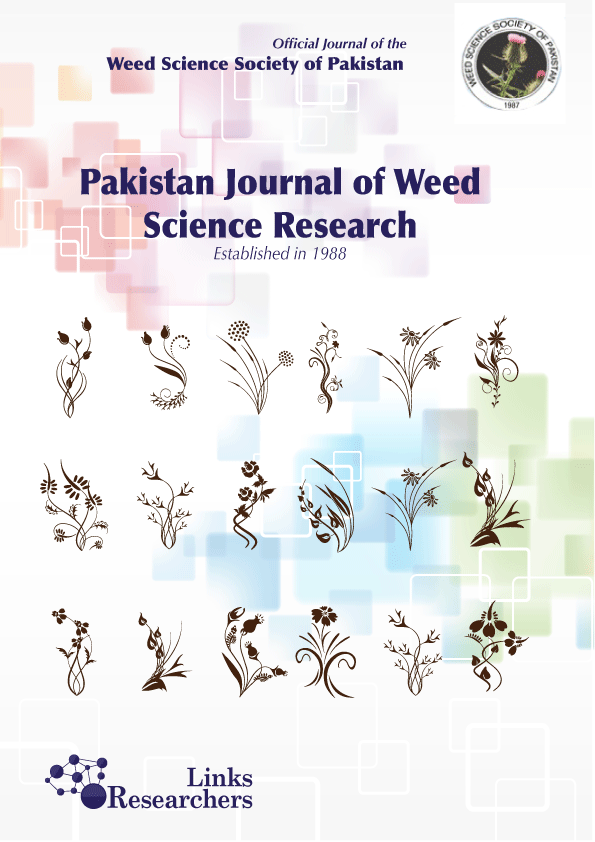Allelopathic effects of plant parts of two invasive weeds on seed germination and
seedling growth of open pollinated maize varieties was investigated at the Agriculture
Graduate Laboratory of the Bacha Khan University Charsadda Pakistan during summer,
2018. The experiment was carried out in CRD design with factorial arrangements repeated
thrice. Five maize varieties viz., ‘Azam’, ‘Babar’,s Pahari’, ‘Iqbal’, and ‘Jalal’ comprised
factor A while, Factor B consisted of water extracts from root, stem and leaf of invasive
weeds; Parthenium hysterophorus and Xanthium strumarium. Distilled water was used as
control for comparison. Data were recorded for germination (%), seedlings length (cm),
shoot weight (g) and root weight (g). It was evident from the results that maximum
germination (100 %), Seedling length (7.6 cm), shoot weight (164.88 g) and root weight
(163.8 g) was recorded for control (water) treatments. However, among the tested extracts
the minimum germination (85.0 %) of maize varieties were achieved under P.
hysterophorus stem extract. Maize variety “Pharri” revealed highest sensitivity towards
allelopathic potential of different extract, giving minimum (87.5 %) germination. On the
other hand, the maize variety Babar showed strong resistance against all applied extracts
(treatments) and showed 100% seed germination. In the light of the current results it is
recommended that the farmer should discourage the growth of P. hysterophorus weed in
their filed as it has strong allelopathic effects on maize crop. Moreover, the farmers should
grow maize variety Babar instead of others as this variety showed strong resistant towards
the allelopathic effects of both the tested invasive weeds.





